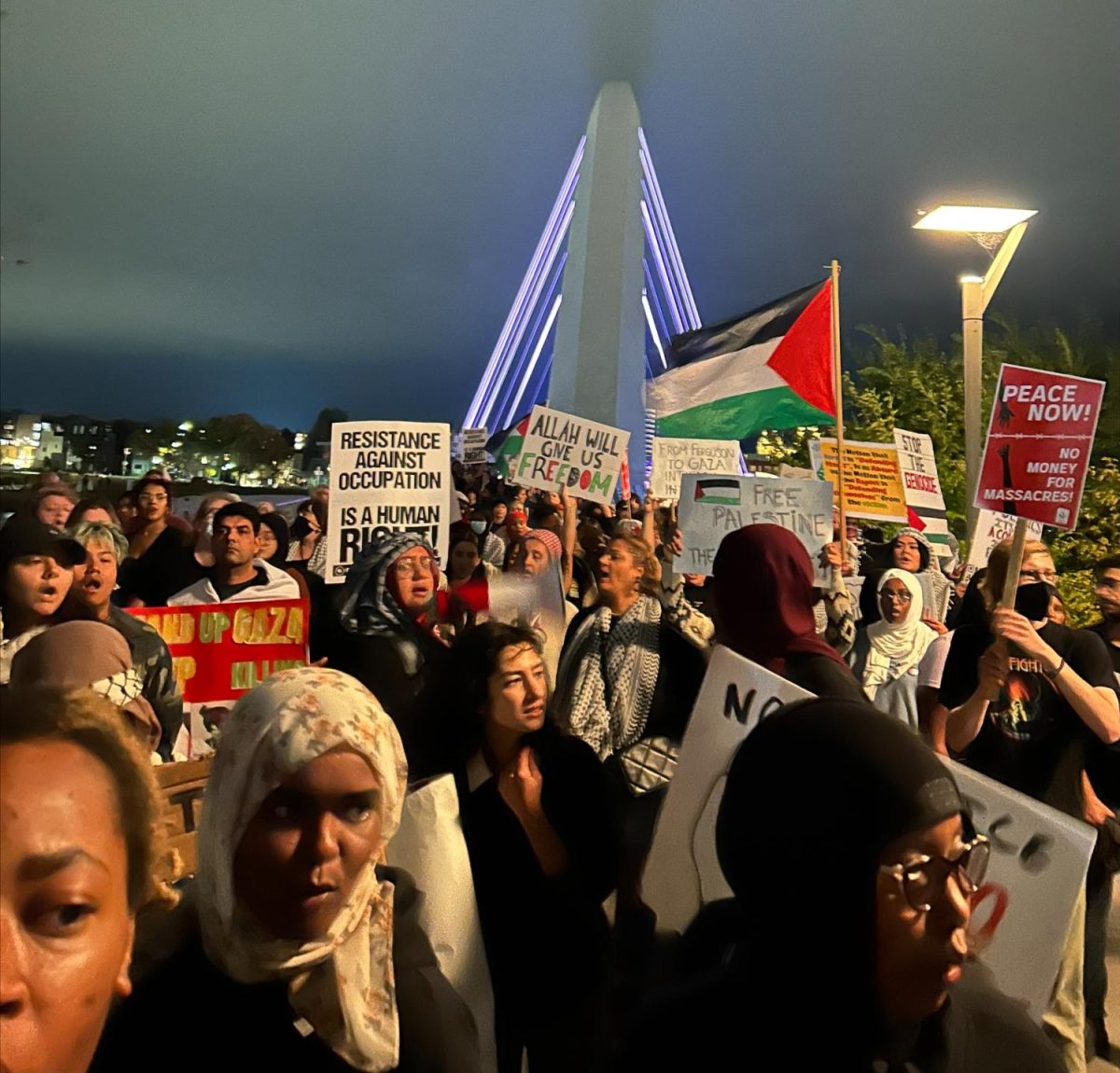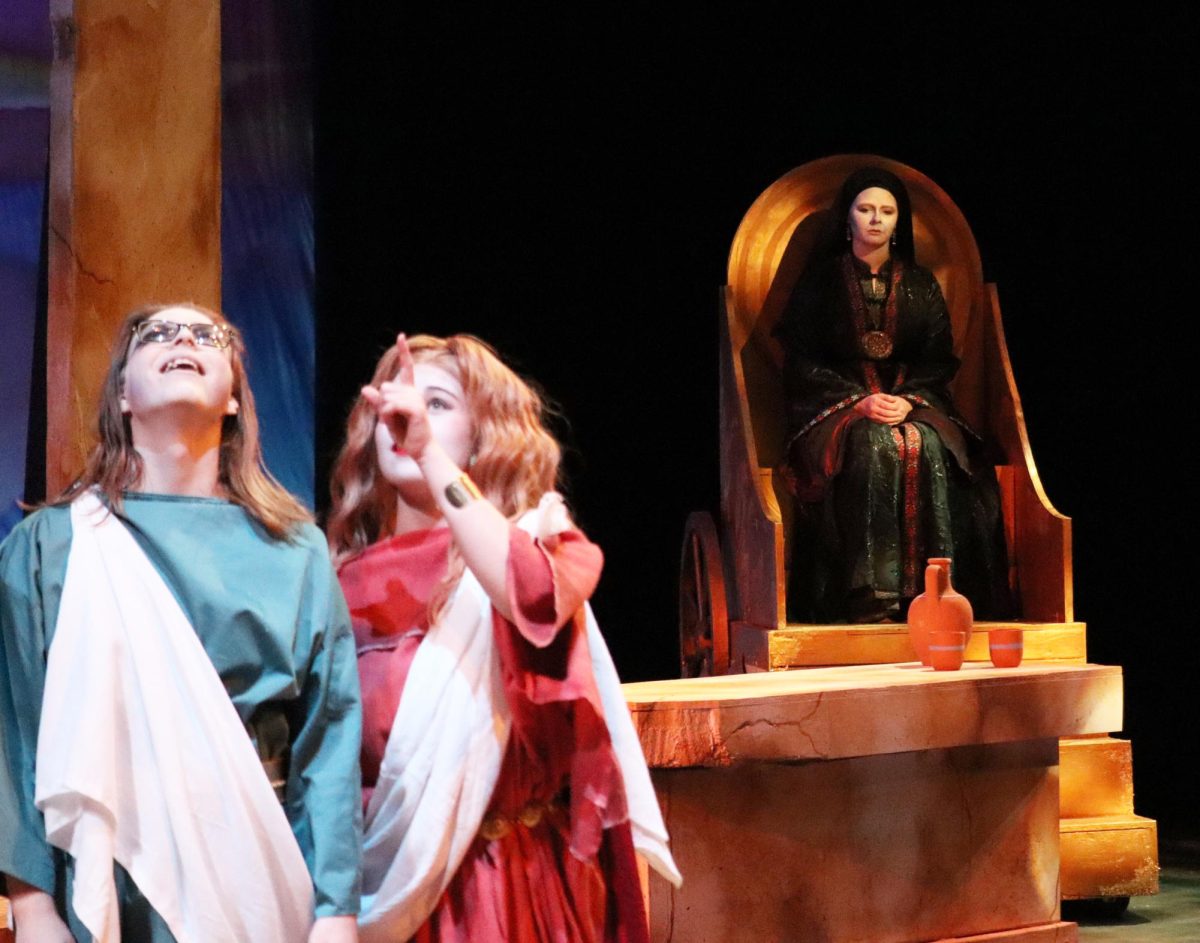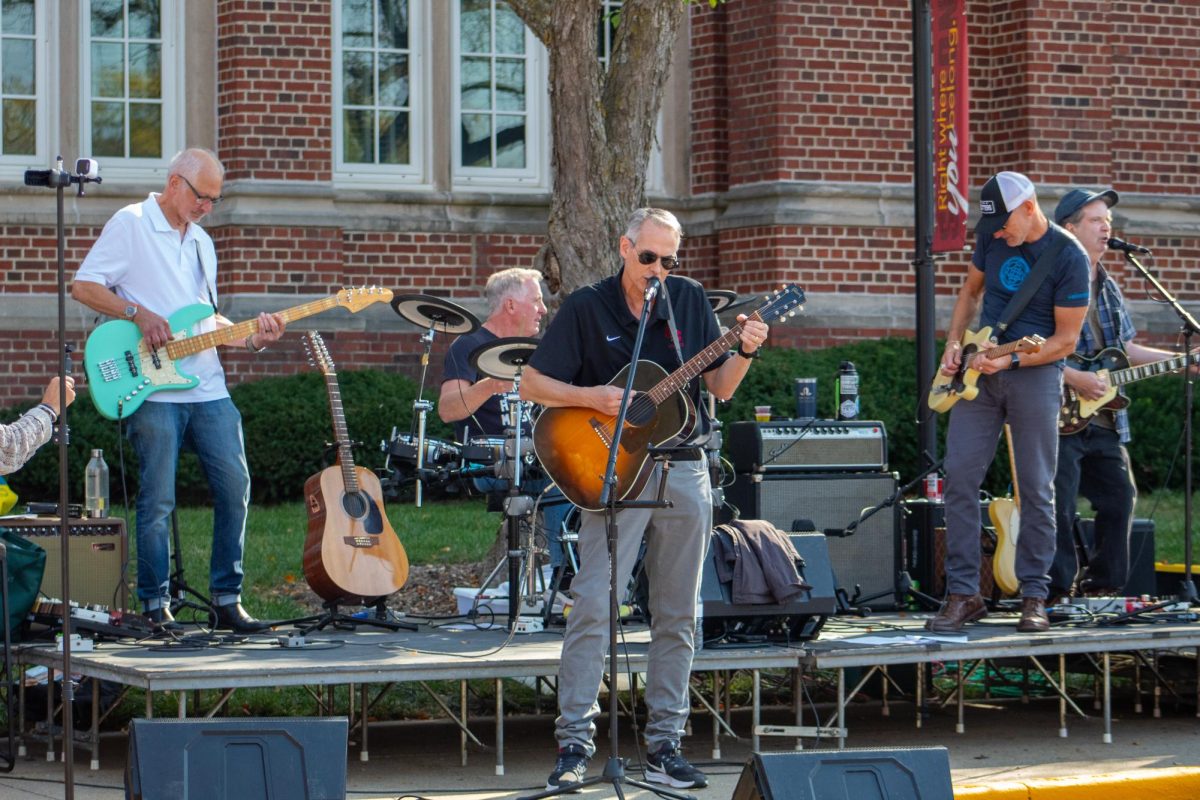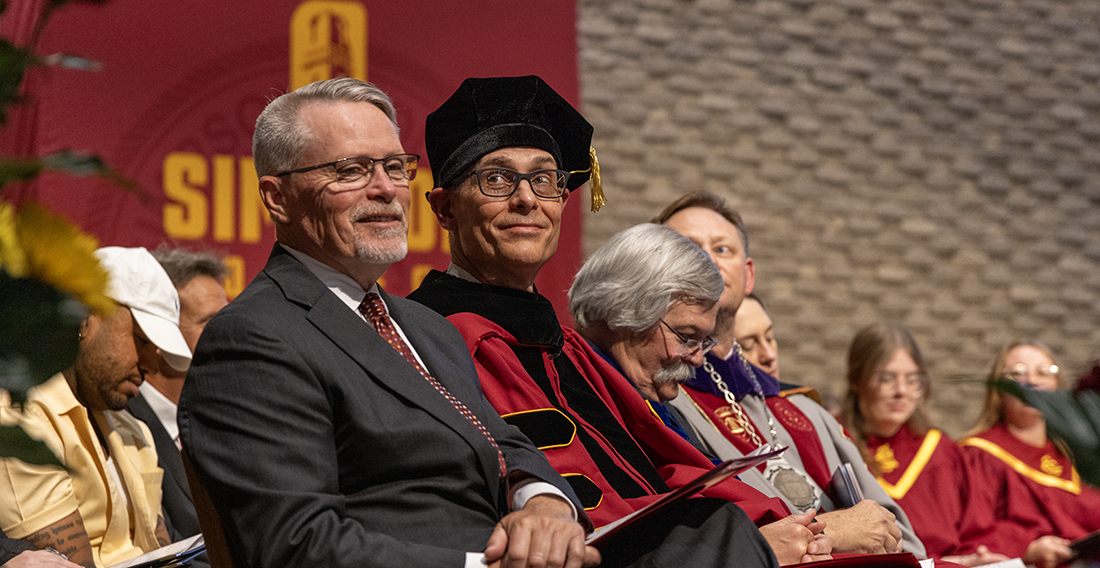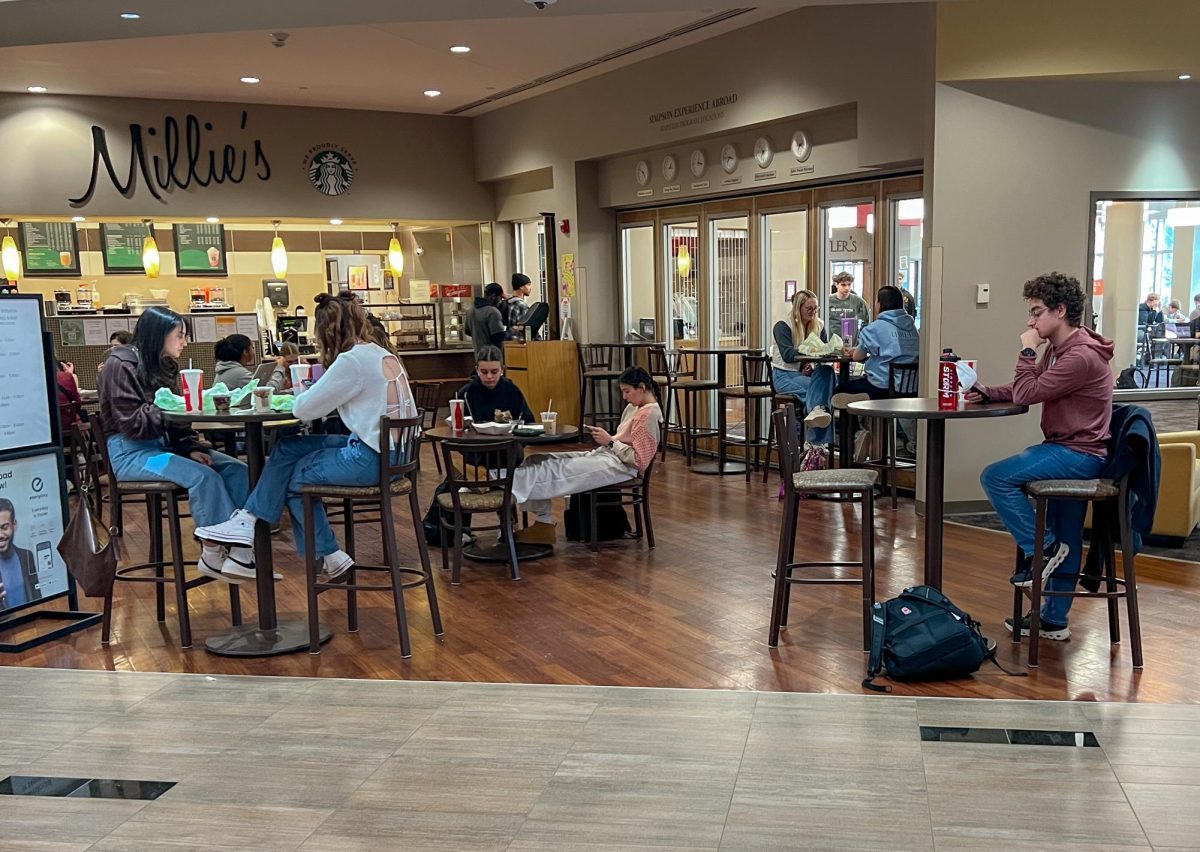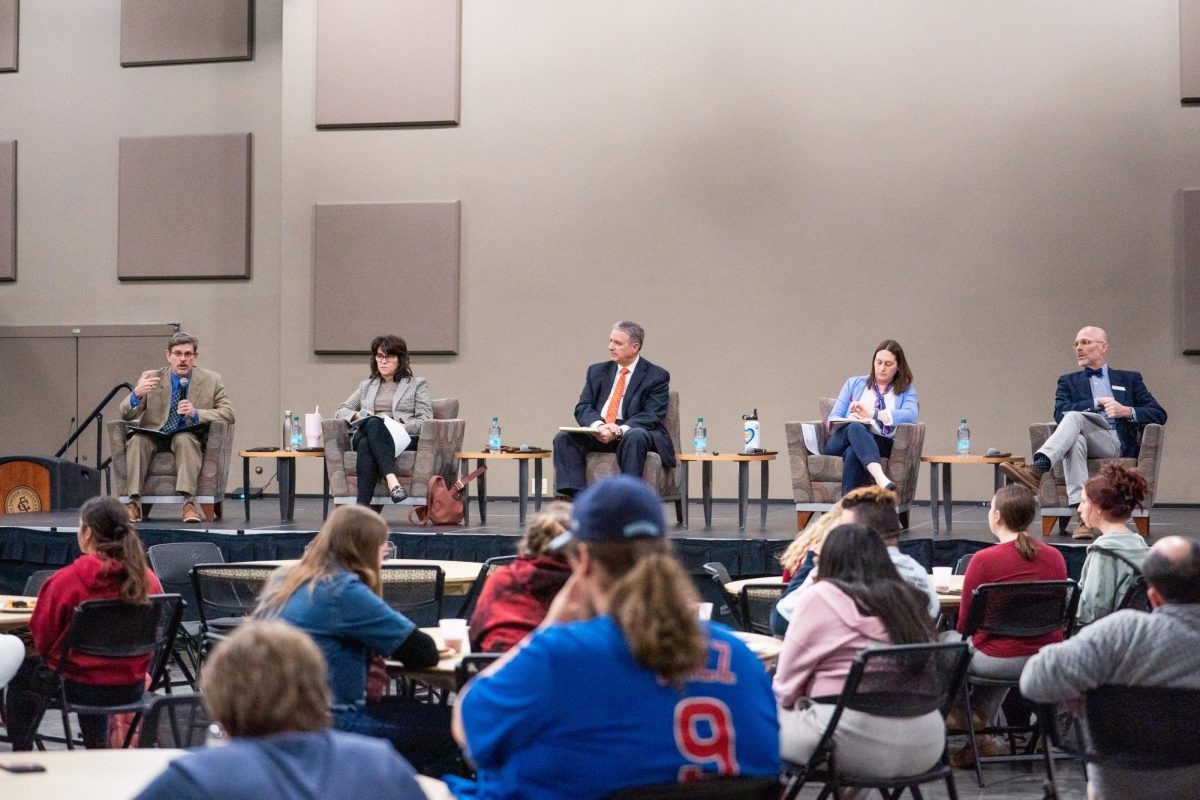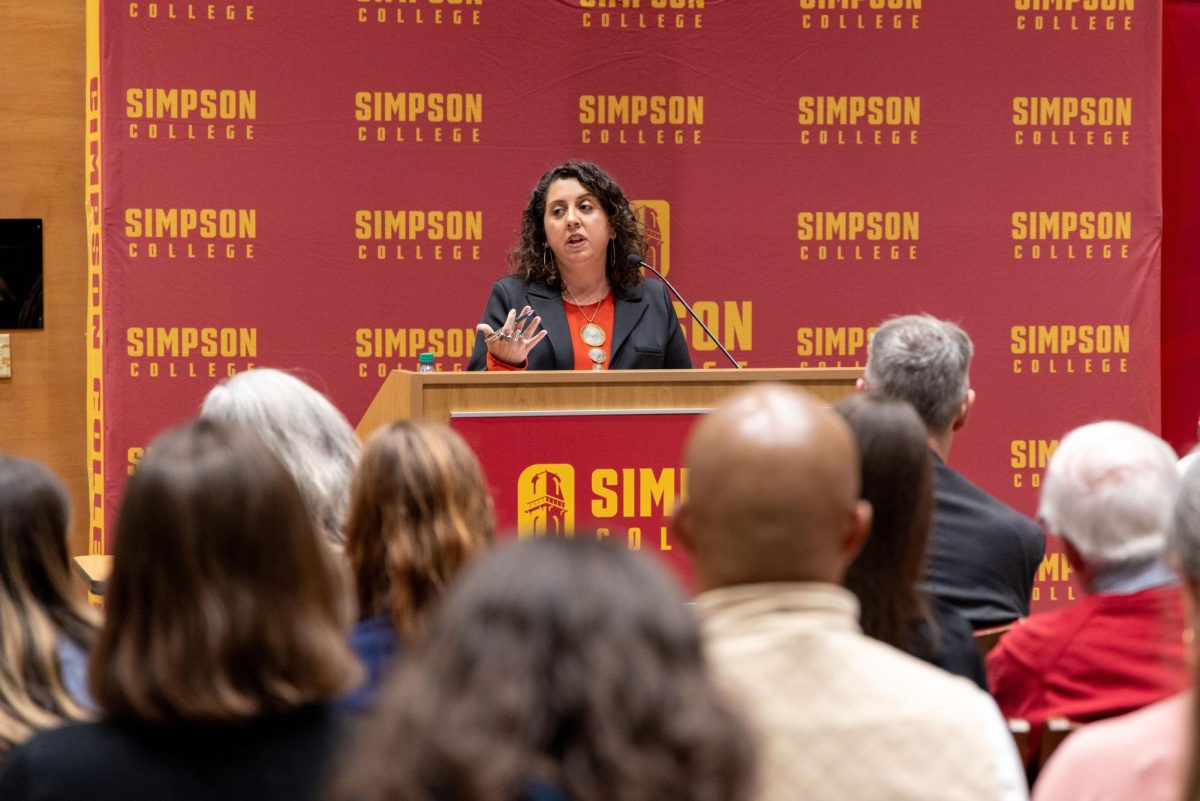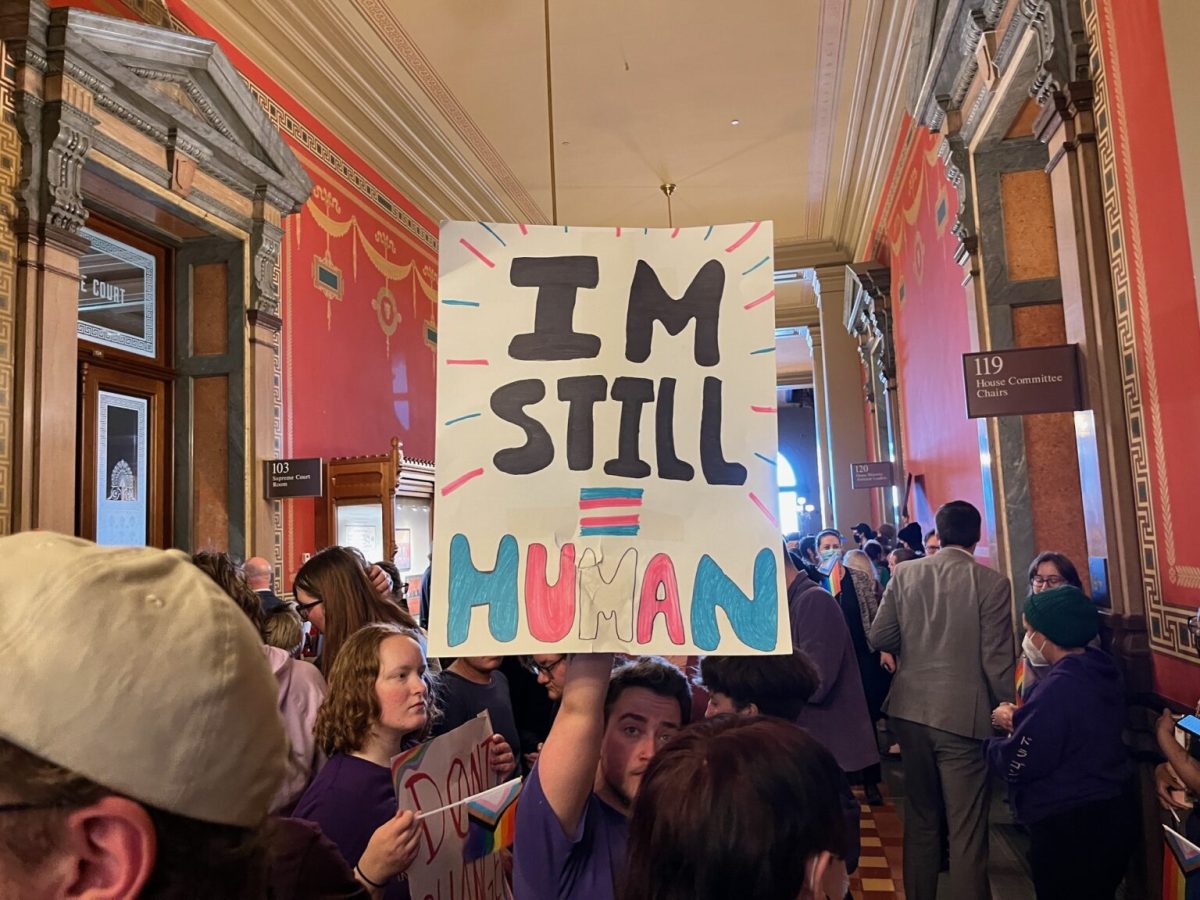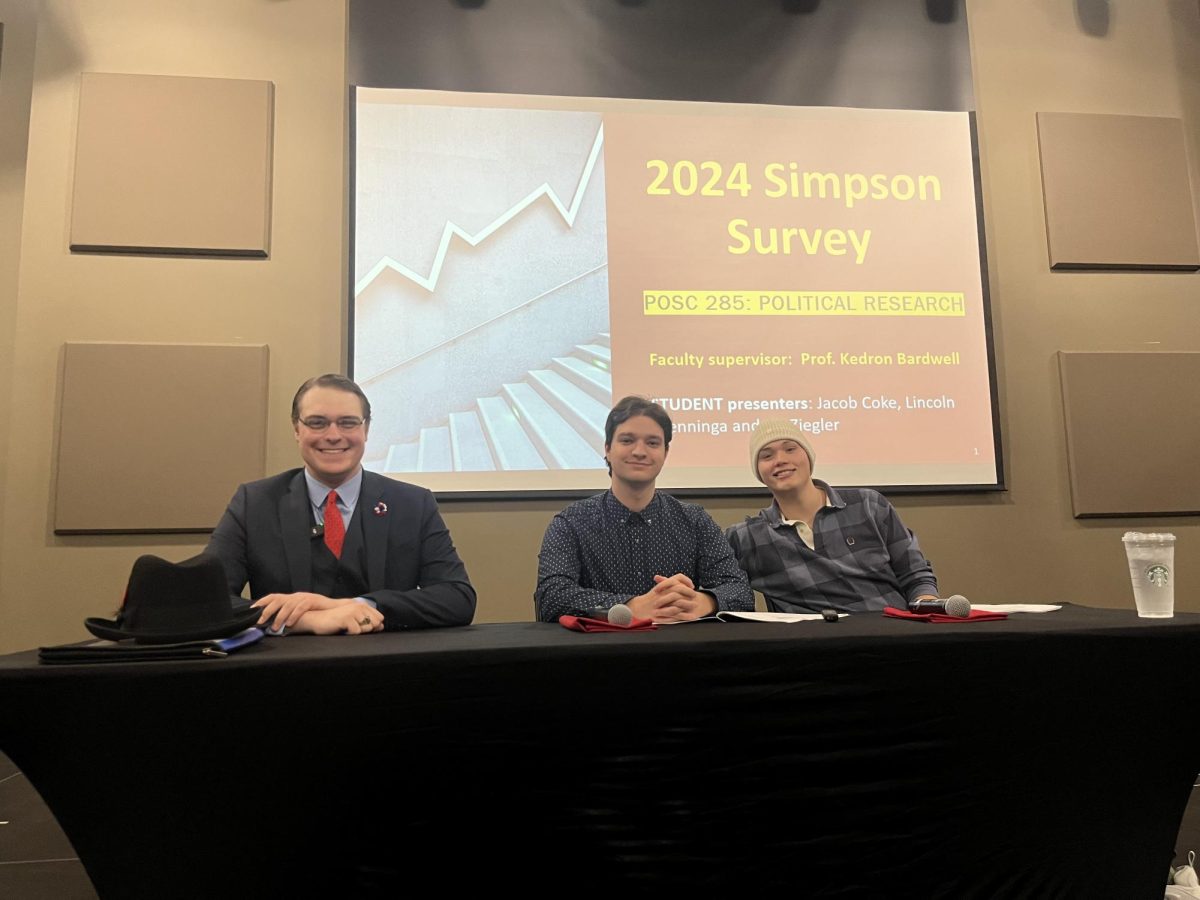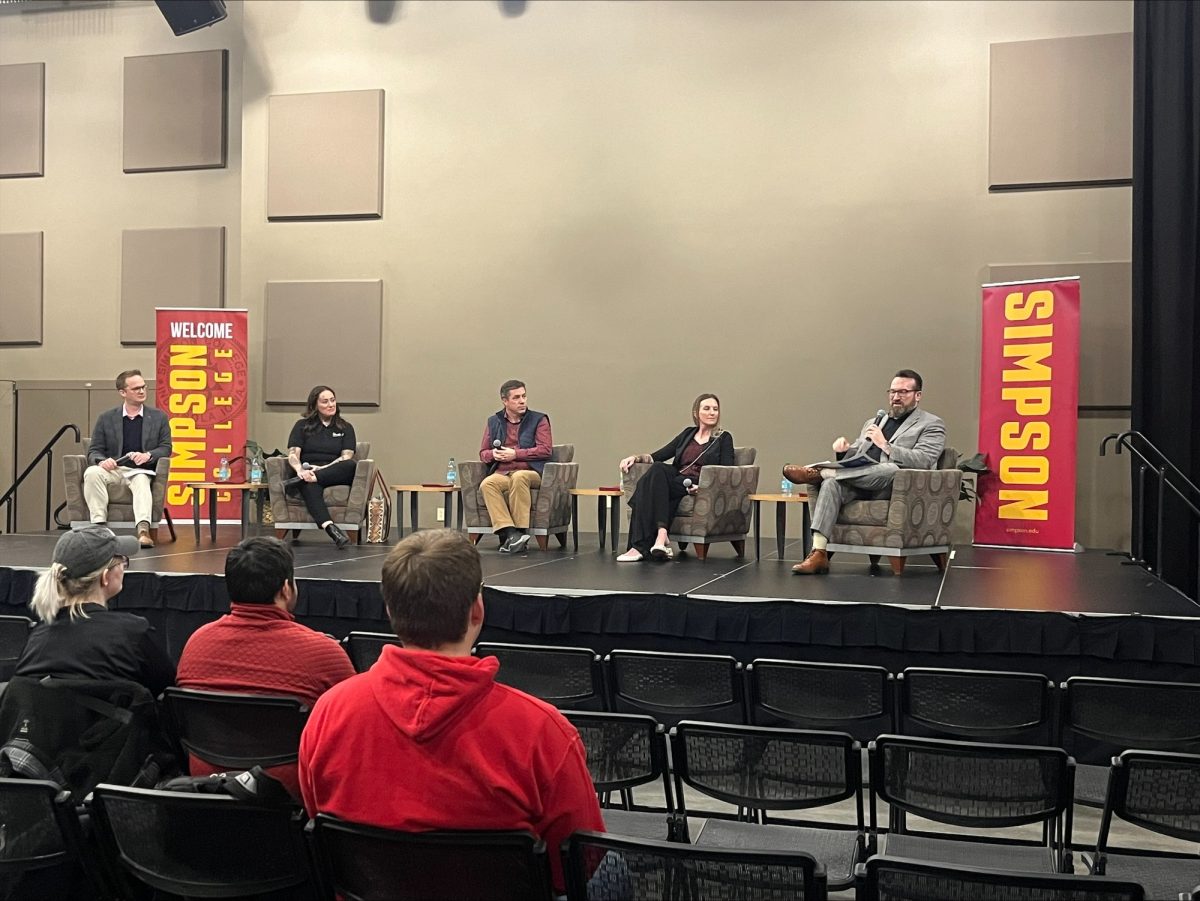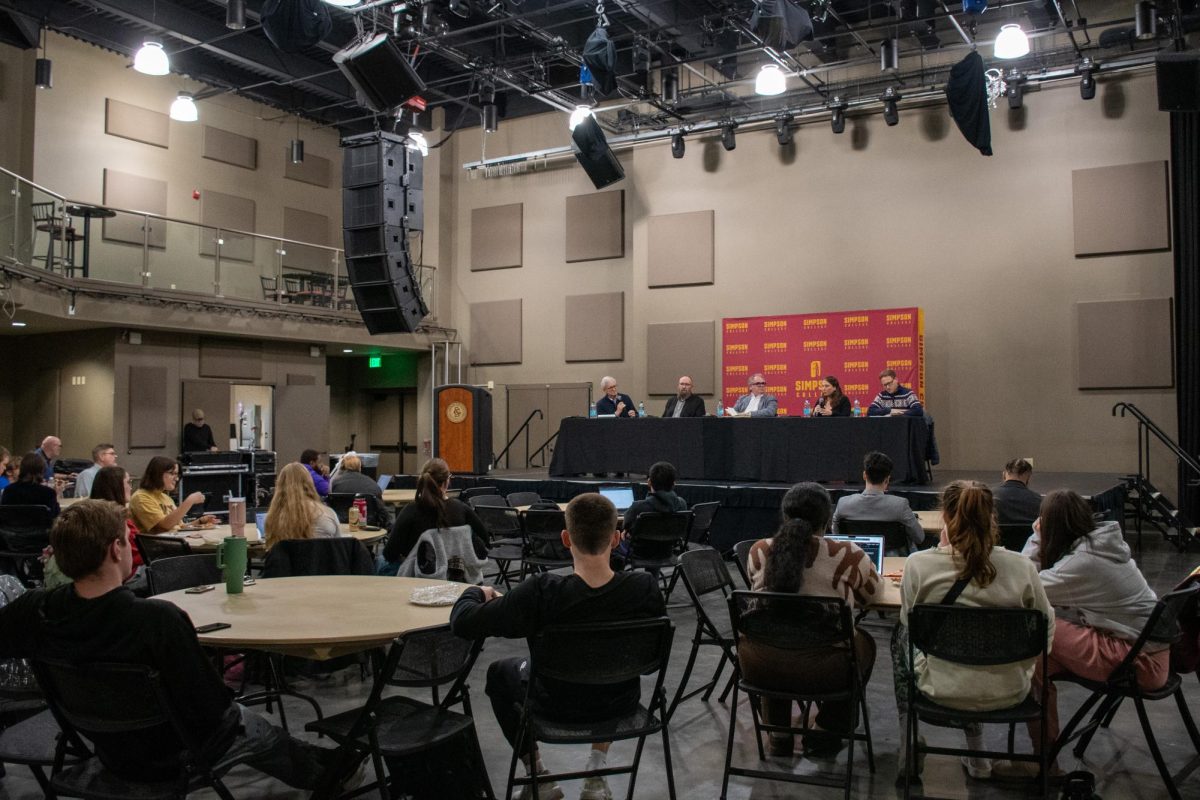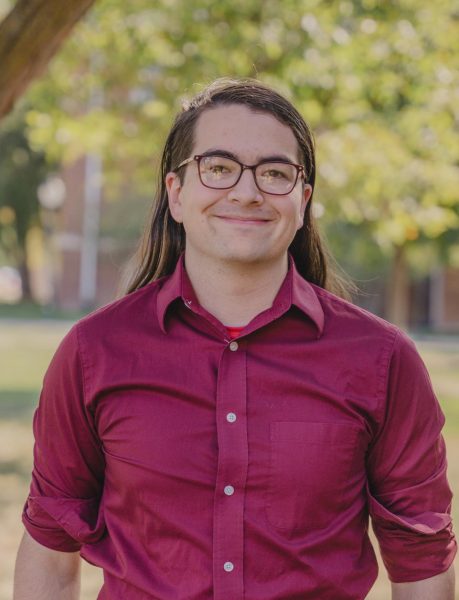Students expressed widely varied opinions on Israel’s invasion of Gaza, but everyone was concerned about civilian casualties and human rights abuses.
According to a timeline from ABC News, on Oct. 7, the terrorist group Hamas launched thousands of rockets from the Gaza Strip and made major incursions into Israeli territory. Hamas also took roughly 200 people hostage.
Later that same day, Israel’s Prime Minister Benjamin Netanyahu, declared war against Hamas. By Oct. 10, it became clear that Israel was planning a significant offensive into the Gaza Strip.
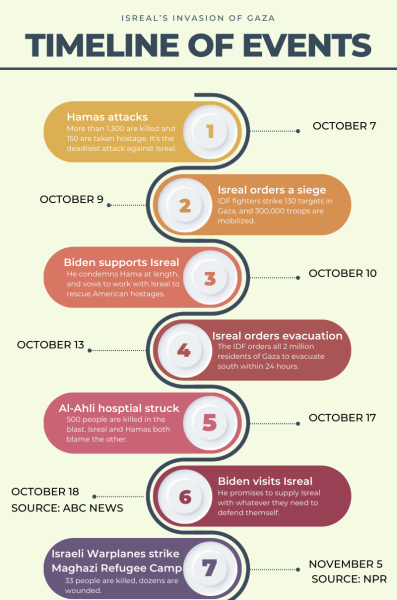
These attacks are the culmination of a nearly 70-year-long conflict between Israel and the Palestinian territories, which include the Gaza Strip and the West Bank.
This conflict reignited discourse surrounding Israel and Palestine’s human rights track record, as well as how peace might be brought to the area.
Simpson students participated in the discourse as well. Many expressed hesitancy to speak on the issue because they didn’t feel they knew enough.
Most students who did speak expressed grave concerns, particularly regarding Israel’s military practices.
“Right now, Palestine is the one getting basically obliterated,” Senior Amanda Harrington said. “It’s almost a genocide.”
The fear of genocide was expressed multiple times, sometimes with more certainty.
Sophomore Iqro Yussuf highlighted the vast power differential between Hamas and Israel, as well as the U.S. support for Israel.
“This isn’t war, it’s genocide,” she said. Some students weren’t willing to identify it as a genocide, but most did express concerns for the future of the Palestinian people.
“I’m worried if there is even going to be a future of [Palestine],” Junior Kylie Rae Torres said.
Several people expressed similar concerns for Israeli citizens. Harrington pointed out that many of the victims of Hamas’ attacks have been young people.
Yussuf expressed doubts that Israel’s invasion was about Hamas in the first place.
“How do you explain the bombing of cities where Hamas is nowhere to be found?” she said.
The civilian casualties are high on both sides, but especially Palestinians. ABC’s timeline says that as of October 23rd, there have been over 1,400 Israeli casualties, but 5,087 Palestinian.
In light of this, all students expressed a desire for a ceasefire or a treaty.
“Too many people are dying,” Torres said. “Not just Palestinians, but Israelis too. We need a ceasefire.”
Senior Kacie Cowman was similarly worried for the future of both populations.
“They must find a way to live together in peace, and they are very far from that right now,” she said.
Unfortunately, as the Wall Street Journal reported on Nov. 3, Netanyahu rejected the idea of a ceasefire unless Hamas released its hostages, despite the U.S. pressuring him otherwise.
Many of the students wanted the U.S. and President Biden to do more to bring Israel back in line with international law.
Harrington, Torres and Yussuf all went to a protest in Des Moines, calling on the U.S. to not send support to Israel.
“The weapons being used to kill Palestinians are American,” Yussuf said. Torres expressed a similar sentiment, adding that the U.S. shouldn’t be funding a genocide.
Harrington was worried not just for what support was being provided, but also for how the issue is framed.
“It seems like they’ve blindly provided support for Israel,” she said. “I don’t think politicians and news sources are giving clear truth.”
Yussuf was upset by the framing of the issue as being a war with Hamas.
“False information is widespread, and regrettably, many individuals believe these deceptive narratives that spread through the news,” she said.
As the death toll continues to rise and the war enters its second month, Simpson students want a lasting peace that provides a homeland for all parties.
“Supporting Palestine means advocating for a land where Jews, Christians, Muslims, and people of all faiths can coexist, just as it was before, living in harmony without any discrimination,” Yussuf said.



